Climate change: Avocados and exotic plants grow in hot UK summer
- Published
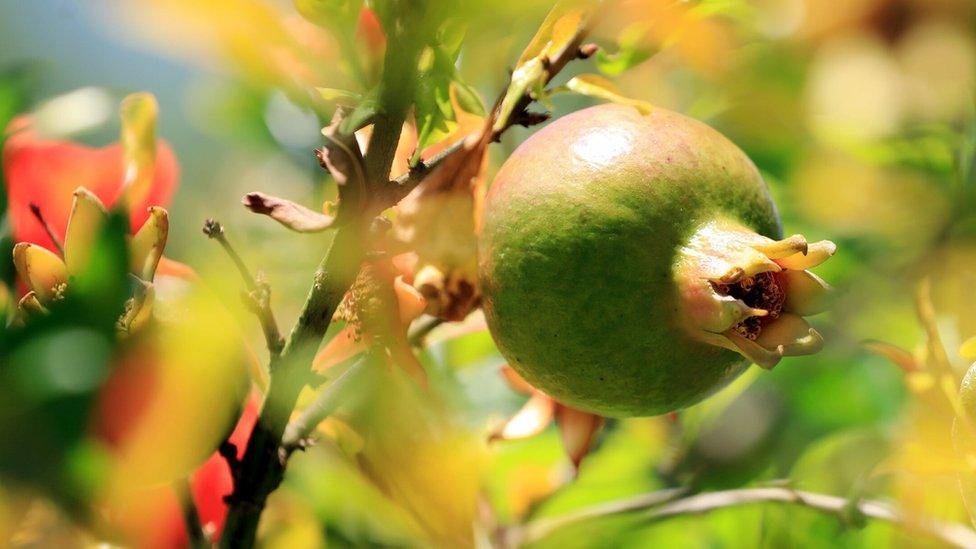
Pomegranate fruit at Royal Horticulture Society garden at Wisely, Surrey
Record-breaking hot and dry weather this summer has seen more exotic plants including figs and avocadoes growing in the UK, gardeners have told BBC News.
It's part of a trend of Mediterranean and sub-tropical plants thriving in recent years, they say.
Some varieties previously thought of as houseplants are now growing successfully outside, while traditional British garden varieties struggle.
But scientists warn that lack of water in the future could threaten plants.
The Royal Horticultural Society (RHS) predicts that wetter winters and warmer, drier summers with greater variability in rainfall will produce conditions favourable to some more exotic plants.
Our planet has warmed by 1.1C since the industrial revolution about 200 years ago, which scientists link to human-induced climate change. The UK is warming slightly faster than the average pace of global temperature increase, according to the Met Office.
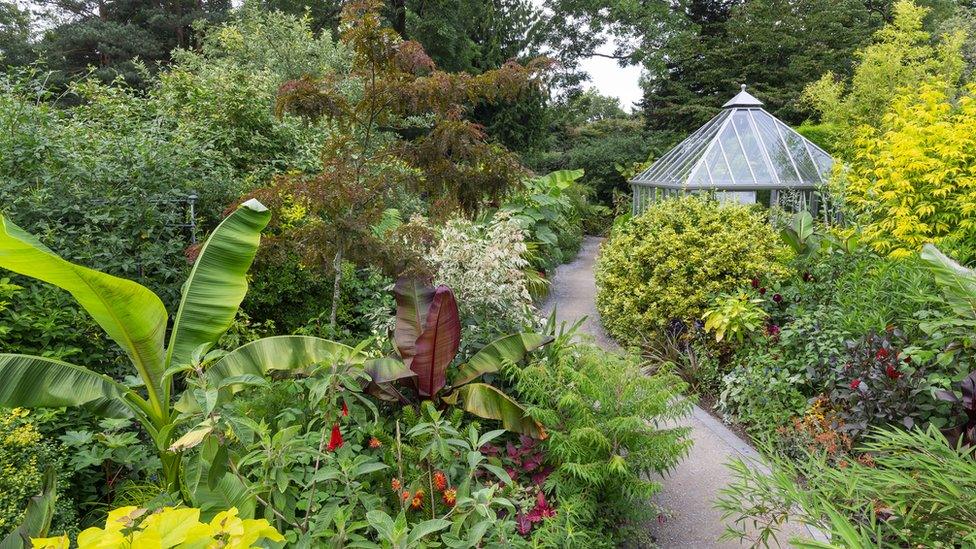
Sub-Tropicana at RHS Garden Harlow Carr in Harrogate
Gardens in the north of England are feeling the effects including Harlow Carr in Harrogate which has had a sub-tropical garden since 2020.
The Royal Horticulture Society garden is curated by Russell Watkins who first started working there 17 years ago. Back then, he grew plants standard to the UK - a mix of hardy shrubs and perennials that live for many years.
"We have all pushed the boundaries of what we can grow", he says, pointing to the huge tropical-looking foliage of the rice paper plant, saying "a few years ago it wouldn't have survived".
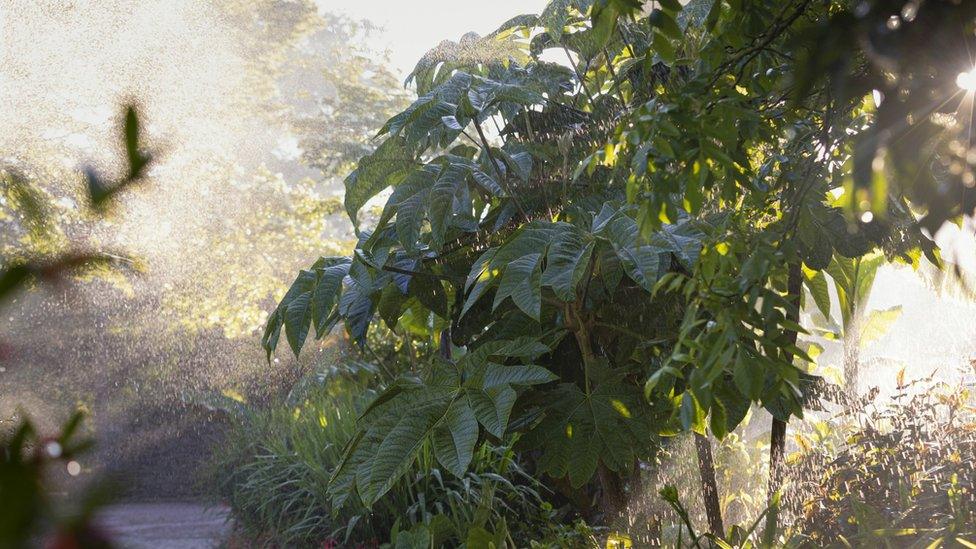
Rice paper plant Tetrapanax papyrifer 'Rex'
Hardy bananas, various dahlias, and some species of ginger are increasingly surviving winters, he says, and "thriving in the long spells of sunny weather that we have had this year."
Higher temperatures are being felt further north than they used to be as a result of human-induced climate change, according to Dr Mark McCarthy, head of the Met Office National Climate Information Centre.
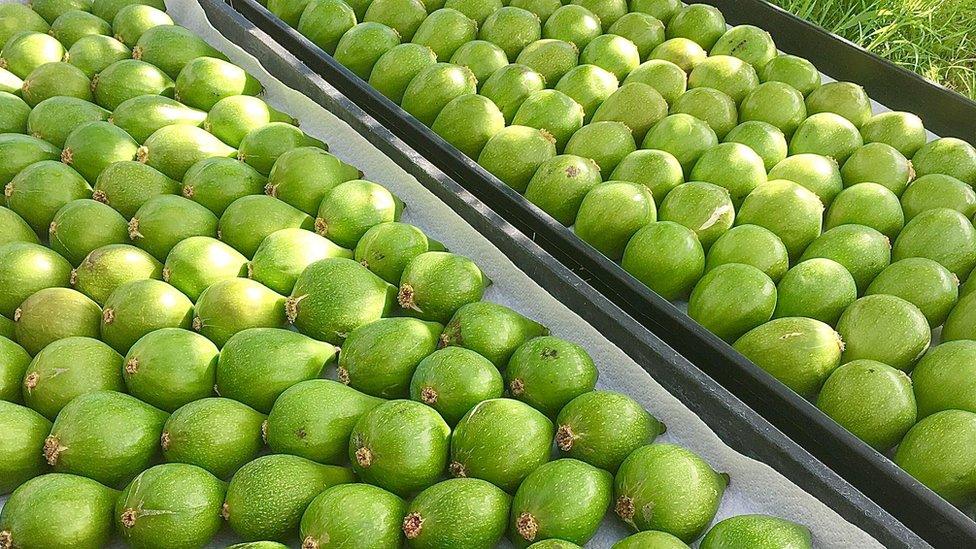
Figs grown in East Anglia
Further south, in East Anglia, window cleaner Chris Bower grows sub-tropical plants as a hobby and has successfully grown watermelons and figs. This year he's proud of his crop of jujube or Chinese dates, persimmons, and yuzu, a type of citrus.
"As climate change continues it becomes easier and easier" to grow non-native varieties, he explains to BBC News.
With experience, he has been able to experiment more, while the drier climate in East Anglia means he tries to grow plants that need less water.
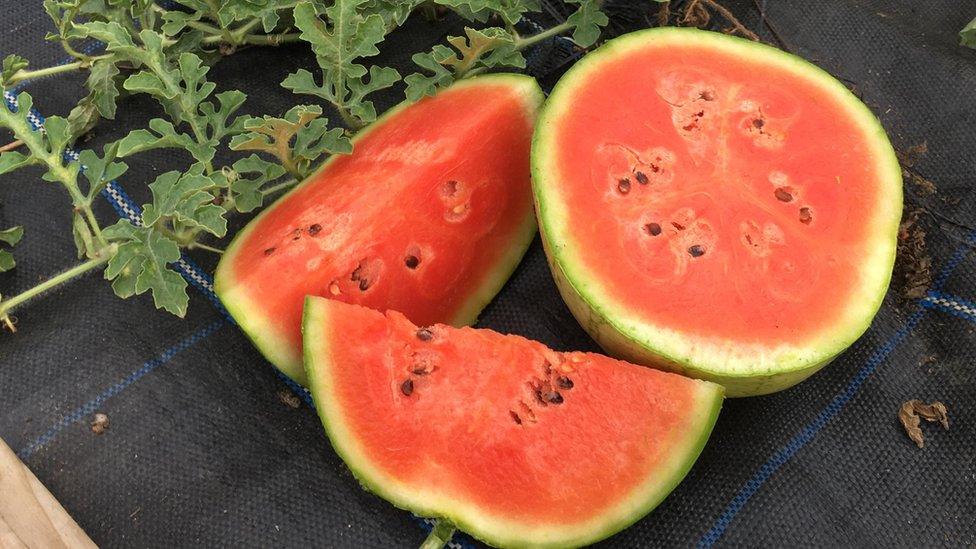
Watermelons grown in East Anglia
While in cities, the heat island effect (where a city experiences much warmer temperatures than nearby rural areas due to the infrastructure) is boosting the growth of exotic fruits.
Kew Gardens Botanist James Wong has found avocados growing in London.
He believes that some are from discarded seeds that have since sprouted, and highlights that they are hardier than many people think.
"The really big London avocados have taken lows of even -10C for short periods including during the 'beast from the east' storm in 2018," he explains.
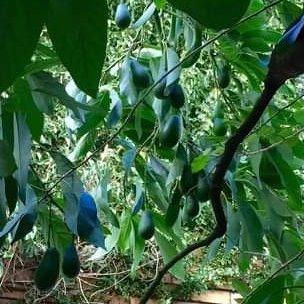
Avocado tree in full fruit on a West London council estate
Some groups, including diaspora communities, have been attempting to grow sub-tropical and exotic fruit and vegetables for many years.
Black Rootz, a black-led growing project in north London, grows sweet potatoes, exotic squashes and tomatillos on their site in Haringey.
The group's co-founder Paulette Henry has been growing these vegetables for decades, but says warmer summers recently have boosted them.
But experts are also warning that a continuation of hot dry summers like the one seen this year will negatively impact crops as all plants need water to grow and establish.
"Long summers may well be initially warmly welcomed in the UK, and provide an exciting opportunity for growing new exotic food crops," explains Chris Atkinson, a plant scientist from the Natural Resources Institute, University of Greenwich explains.
But he warns water shortages pose a problem to effectively growing any type of plant.